Muraho!
Day 2
Our team has just finished day three of our trip to Rwanda. On our second day in Kigali, we woke up early for a light jog to the airport to pick up our lost luggage. The jog took us through the rolling Kigali hills and local neighborhoods. We were impressed by the spacious green landscape in the hill valleys preserved by the city of Kigali. After returning to Centre Christus for what the team has decided is “the best coffee ever made,” we crammed into the Green Machine for a trip to the MTM cellular store. Rain poured down as the team ran inside the building to purchase SIM cards that would enable phone calls and improved communication in our community.
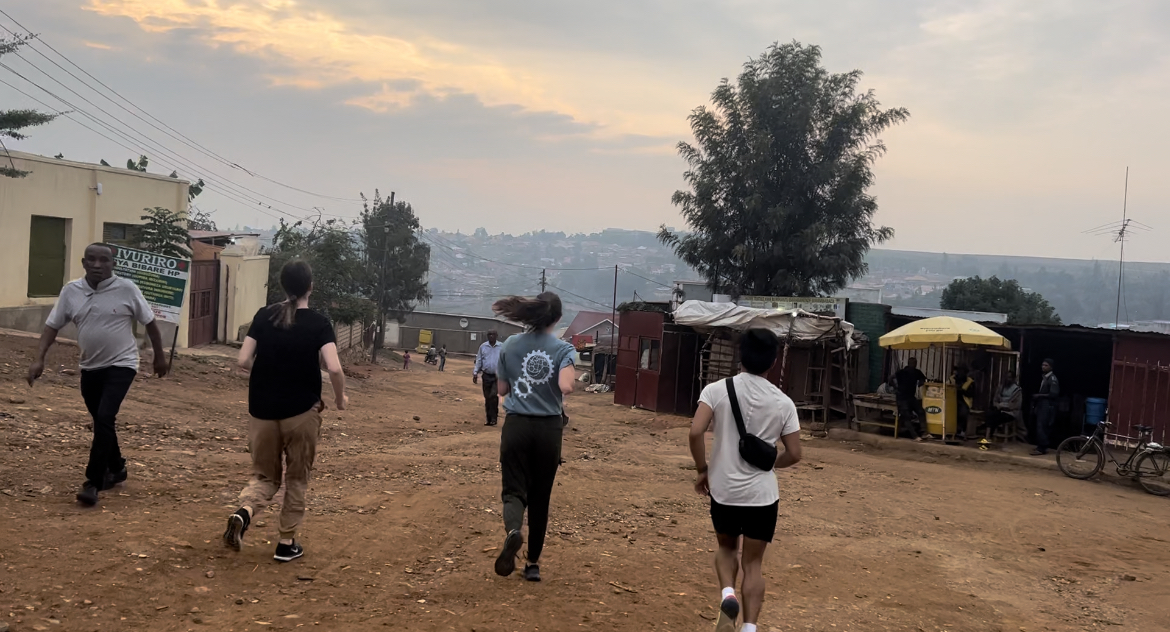 (Morning run to the airport)
(Morning run to the airport)
Next, we visited Davis and Shirtliff and Munyax Eco who have been collaborating with both companies to choose our materials for this project. After some confusion, MunyaxEco supplied the desired pump along with some additional hardware that would expedite the installation process.
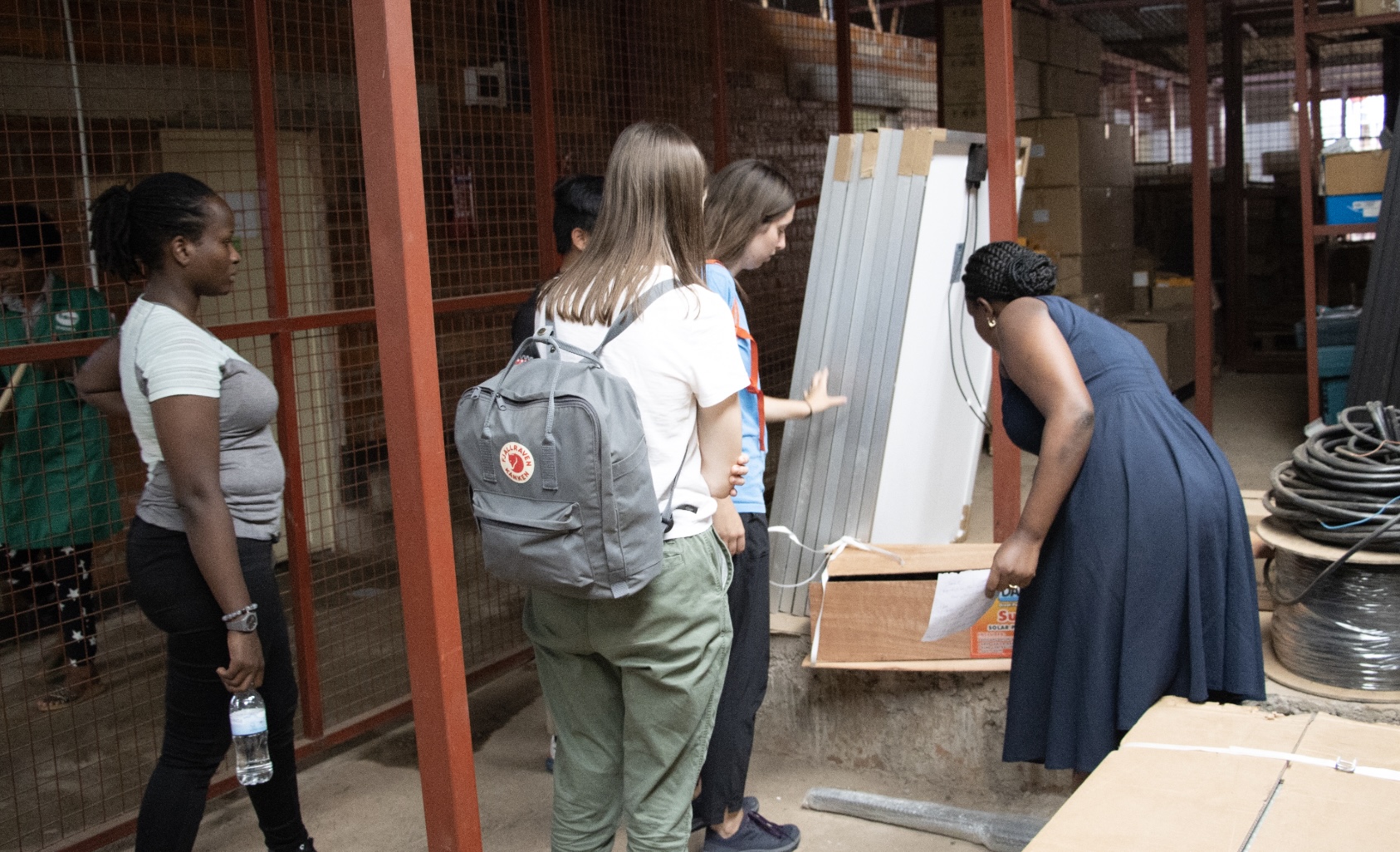 (The team being led to the pump and solar panels at Munyax Eco)
(The team being led to the pump and solar panels at Munyax Eco)
In case the Green Machine wasn’t already a clown car, we strapped our solar panels to the roof and made space by our feet for our new pump kit! After that, Aaron and Mia met our partner professional engineers from EWB Rwanda to finalize the plan for construction in the coming days. Meanwhile the rest of the team hit the market to purchase some extra materials to protect the solar panels during storage. The team concluded the day with some smoothies and reflections.
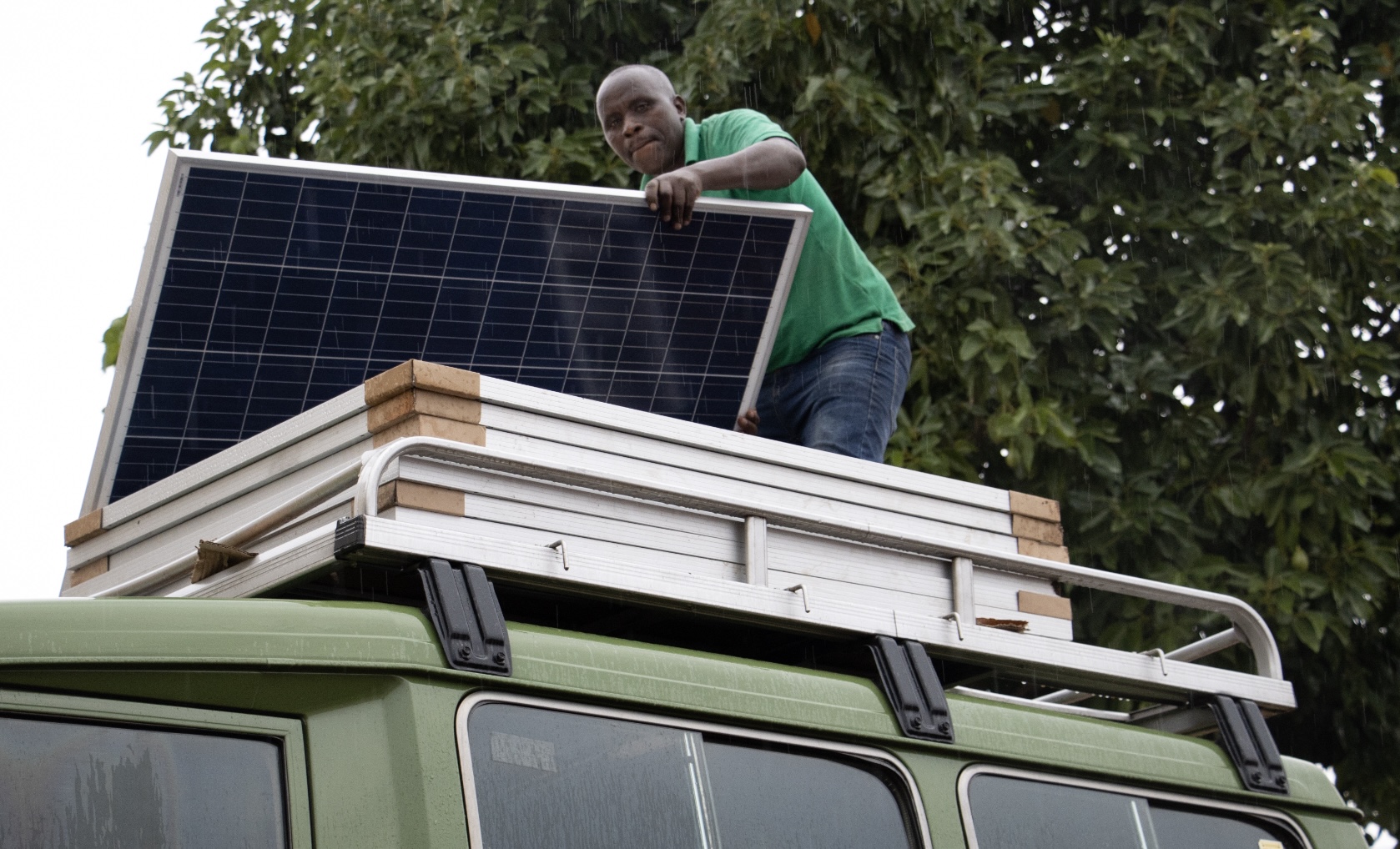 (Solar panels being loaded onto the Green Machine roof)
(Solar panels being loaded onto the Green Machine roof)
Day 3
We woke up bright and early to leave Centre Christus in the Green Machine to start our journey to the co-operative in Nyange. Before driving to the community, we dropped off luggage at Don Bosco, the Jesuit residence that we will be staying at while we plan to work in the community. After a bumpy, pothole ridden drive from Muhunga, we were welcomed warmly by the members of the co-operative at the community building. In addition to our community, we exchanged greetings with technicians who were finishing cement work around the Rutsiba water source (the shallow cased hole where we plan to pump water from) and four high school Rwandan students from a nearby technical school, both of whose education and knowledge of the project will play a key role in helping maintain our water project over time.
We began our time in the community by meeting with the co-operative, Pastor John R (the head of our NGO, Faith In Action), and Fr. Innocent (our in-country contact from Faith In Action). Mediatrice, the president of the co-operative, thanked us for traveling to the community, introduced each member of the cooperative, and reviewed their history.
For those who are not familiar, the Giko Village Co-operative was formed originally as a group of 10 people who shared the same struggles of providing for their families by subsistence farming. They met Pastor John R, who helped them organize, create leadership structures, and achievable goals. Over time they gained more members and realized the urgency to address homelessness within their membership. With John R’s help, they attended a training in Kigali on how to create bricks and roof tiles using Rwanda’s natural clay pits so that they could build their own shelters. Additionally, with their organization, they were able to collaborate with the local Rwandan government to establish their own dedicated land and co-operative building. Over time they gained more members (now representing 20+ total families) and have currently provided housing for three of their families. They dream of providing a road-side rest stop for travelers where they can provide goods and services to the surrounding community.
We shared our gratitude for welcoming us into their home, reviewed EWB’s purpose, and then shared a video from the previous EWB travelers as well as some printed photos from our visit in 2019. The community was touched by the videos and caringly passed around the photos smiling and pointing at their favorite travelers.
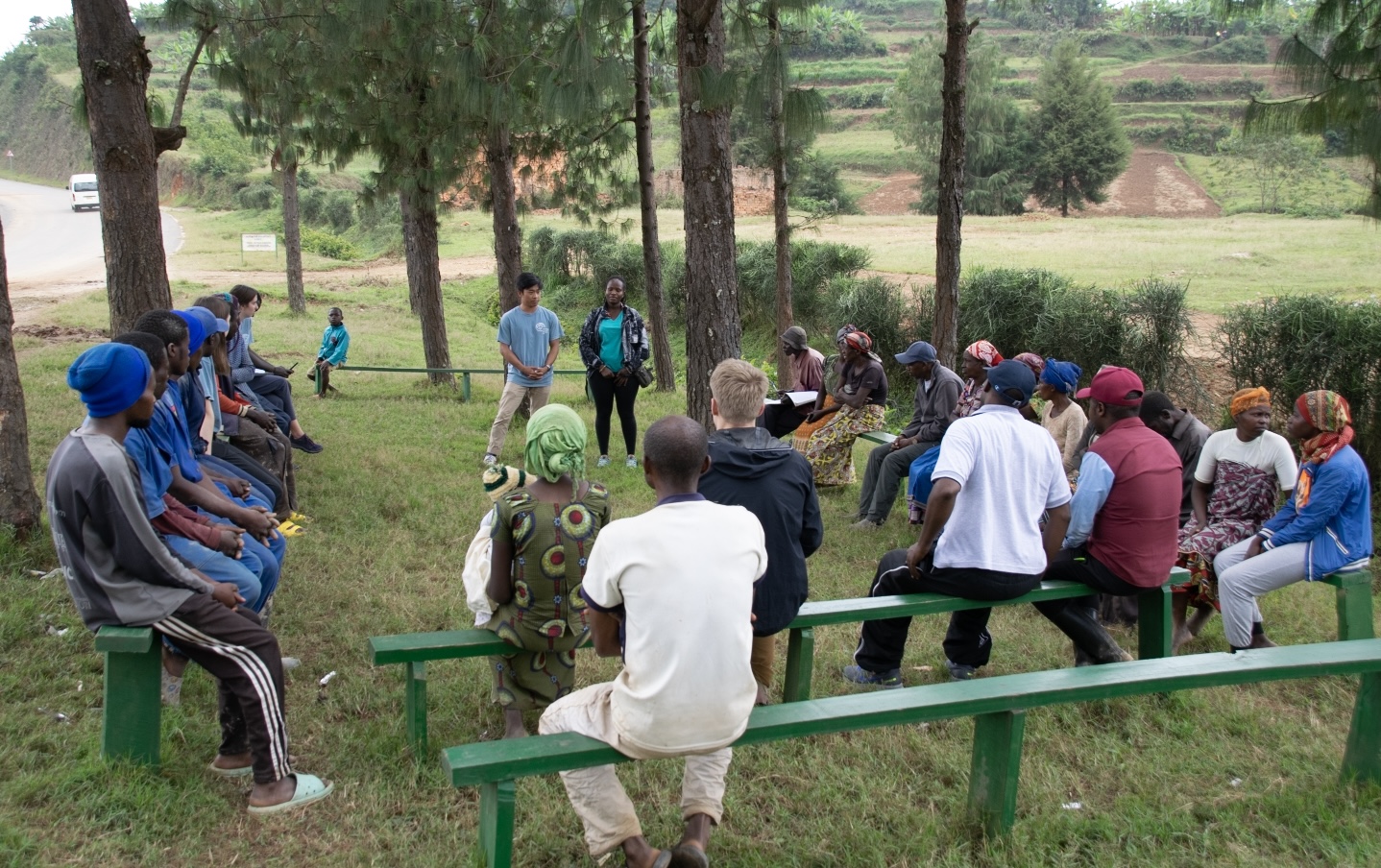 (Aaron addressing the community)
(Aaron addressing the community)
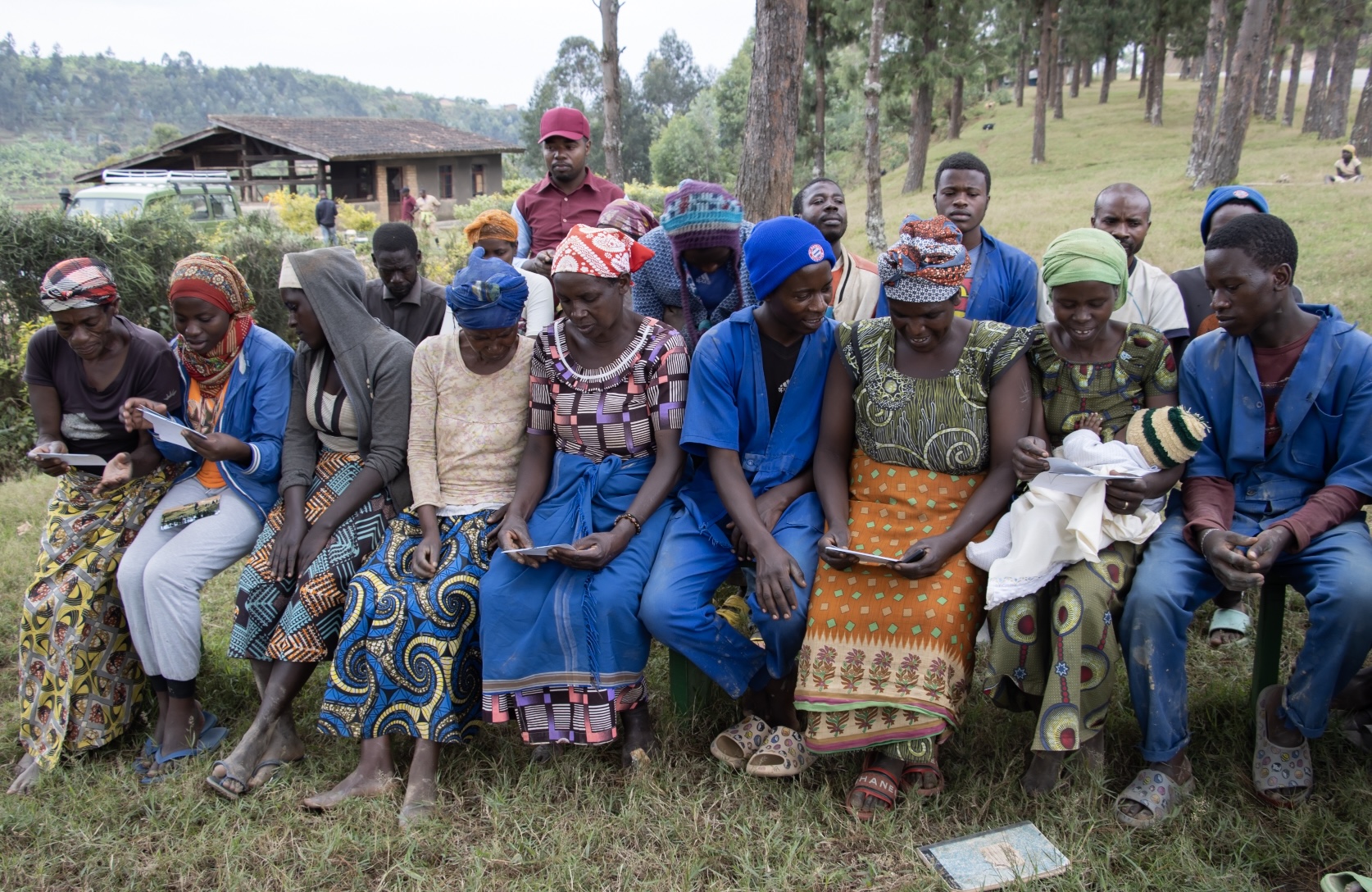 (Community members admiring pictures with the 2018 travel team)
(Community members admiring pictures with the 2018 travel team)
We walked down the hillside into the valley to the Rustiba water source located below the community building to review the construction that EWB Rwanda completed. Sixbert, a local technician working with the community, was working to pump water out of the Rutsiba water source\ to access the temporary drainage hole at the bottom of the casing. We learned that the pump they were using stopped working, but after some collaborative investigation the team was able to find a solution.
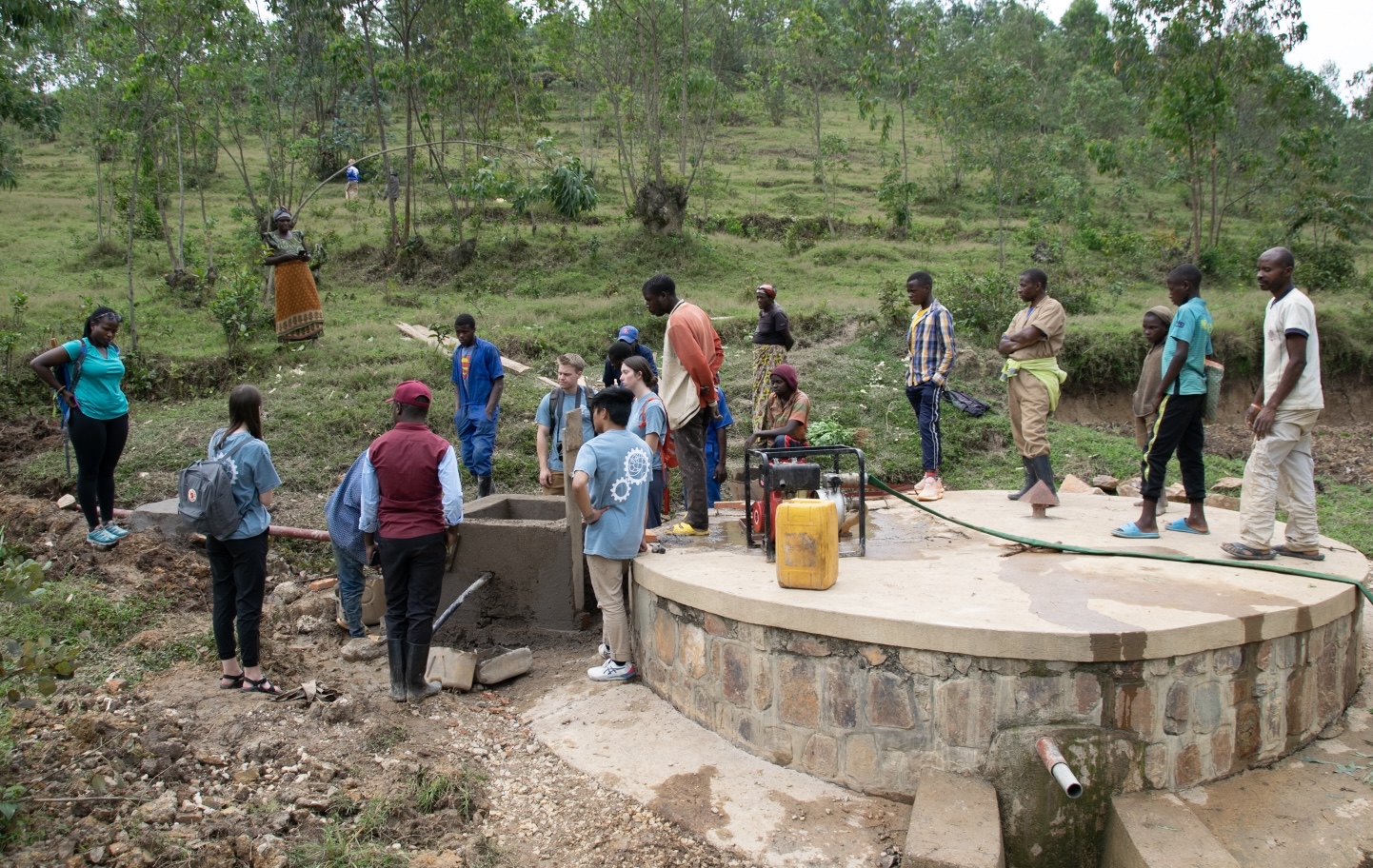 (From left to right: outlet pipe, system access point, and Rutsiba water source)
(From left to right: outlet pipe, system access point, and Rutsiba water source)
After returning to the cooperative building, we reviewed our 2017 project (Cart V1) and 2018 project (Cart V2), which were off-grid, solar powered, electric wagons designed to help the community haul clay from the valley to their cooperative building. We took some time with Mediatrice, Drocella, and Calixte to understand how the carts were being used. Cart V1 appeared to have a breaker issue, so the cooperative was opting to use the V2 cart, which was still functioning well. We learned that in addition to clay, they frequently used the cart to carry jerry cans of water from the nearest town. The only complaint was that the charge indicator would not reach 100% even when left charging for an extended amount of time. We suspect that the battery health may have decreased with heavy use in the last two years, and plan to verify the voltage and battery health in the next two days once the cart has had time to charge.
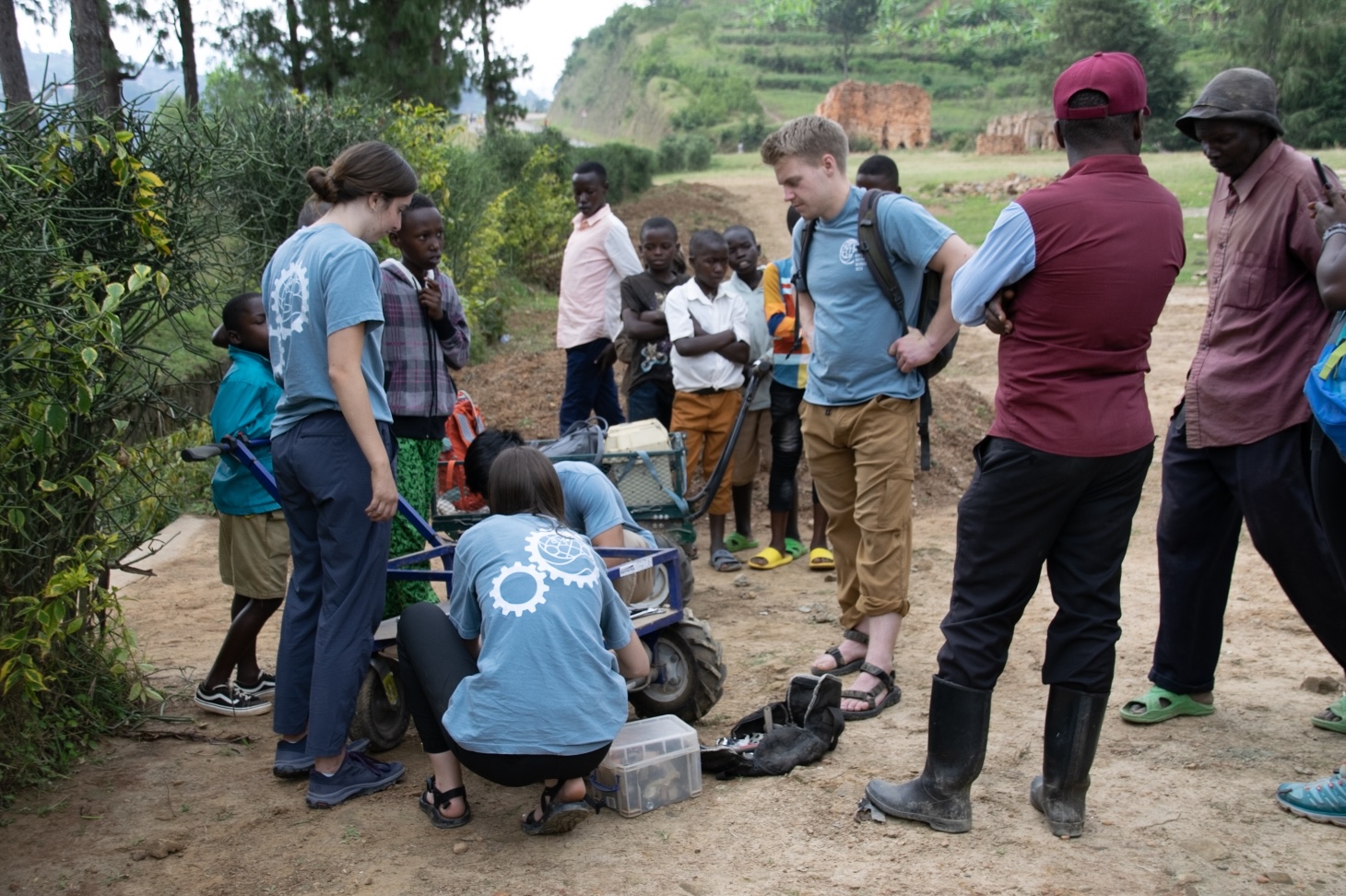
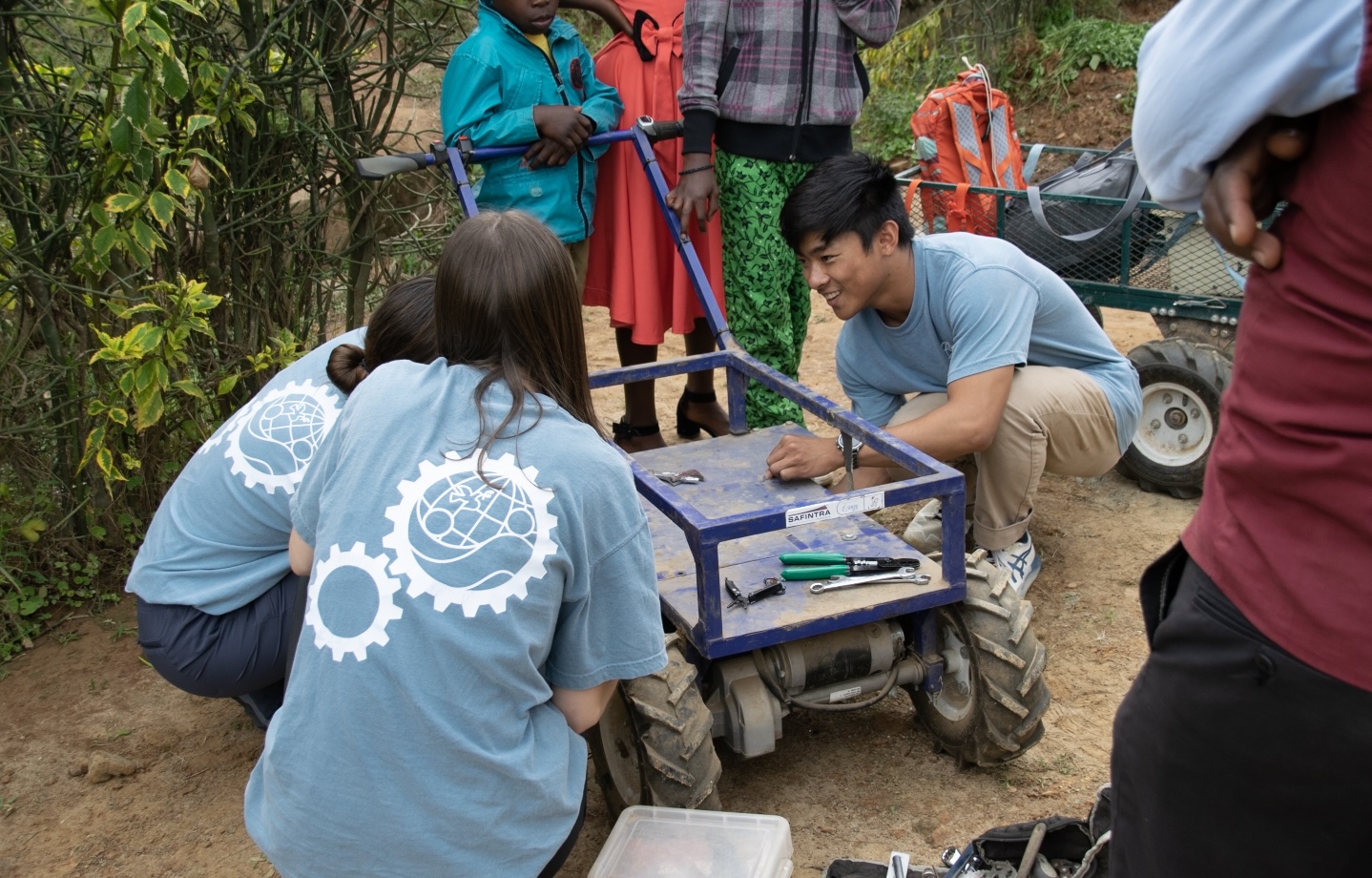 (Team reviews electric wagon projects)
(Team reviews electric wagon projects)
Remaining Work
In the coming days, the team plans to complete water quality testing, continue maintenance on the carts, install the solar panel and pump, train the community on pump operations, and continue working with and getting to know the community.

Murakoze,
EWB 2022 Travel Team
